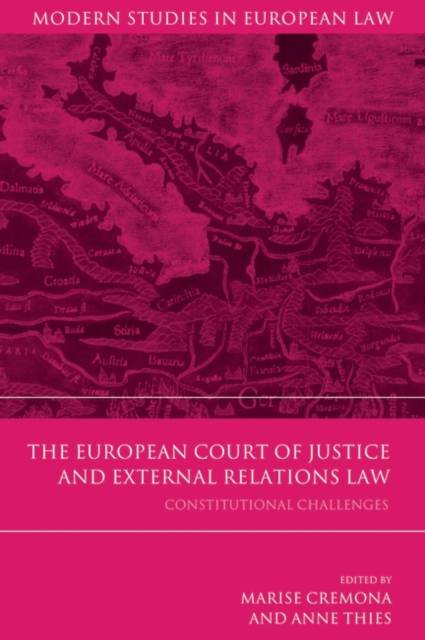
- Retrait gratuit dans votre magasin Club
- 7.000.000 titres dans notre catalogue
- Payer en toute sécurité
- Toujours un magasin près de chez vous
- Retrait gratuit dans votre magasin Club
- 7.000.0000 titres dans notre catalogue
- Payer en toute sécurité
- Toujours un magasin près de chez vous
The European Court of Justice and External Relations Law
Constitutional Challenges
Marise Cremona, Anne Thies
129,95 €
+ 259 points
Description
This edited collection appraises the role, self-perception, reasoning and impact of the European Court of Justice on the development of European Union (EU) external relations law. Against the background of the recent recasting of the EU Treaties by the Treaty of Lisbon and at a time when questions arise over the character of the Court's judicial reasoning and the effect of international legal obligations in its case law, it discusses the contribution of the Court to the formation of the EU as an international actor and the development of EU external relations law, and the constitutional challenges the Court faces in this context. To what extent does the position of the Court contribute to a specific conception of the EU? How does the EU's constitutional order, as interpreted by the Court, shape its external relations? The Court still has only limited jurisdiction over the EU's Common Foreign and Security Policy: why has this decision been taken, and what are its implications? And what is the Court's own view of the relationship between court(s) and foreign policy, and of its own relationship with other international courts? The contributions to this volume show that the Court's influence over EU external relations derives first from its ability to shape and define the external competence of the EU and resulting constraints on the Member States, and second from its insistence on the autonomy of the EU legal order and its role as 'gatekeeper' to the entry and effect of international law into the EU system. It has not - in the external domain - overtly exerted influence through shaping substantive policy, as it has, for example, in relation to the internal market. Nevertheless the rather 'legalised' nature of EU external relations and the significance of the EU's international legal commitments mean that the role of the Court of Justice is more central than that of a national court with respect to the foreign policy of a nation state. And of course its decisions can nonetheless be highly political.
Spécifications
Parties prenantes
- Auteur(s) :
- Editeur:
Contenu
- Nombre de pages :
- 298
- Langue:
- Anglais
- Collection :
- Tome:
- n° 49
Caractéristiques
- EAN:
- 9781849465045
- Date de parution :
- 25-09-14
- Format:
- Livre relié
- Format numérique:
- Genaaid
- Dimensions :
- 163 mm x 234 mm
- Poids :
- 612 g

Les avis
Nous publions uniquement les avis qui respectent les conditions requises. Consultez nos conditions pour les avis.






